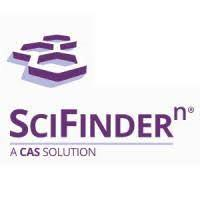Program in Chemical Biology Resources
Synthetic Chemistry Facility
The PCB Synthetic Chemistry Facility provides organic synthesis capabilities for chemical biology and medicinal chemistry projects. Led by Dr. Brian Smith, the facility houses a team of chemists, including a full-time PhD chemist, Dr. Rob Keyes, and three postdoctoral fellows. The facility is equipped with four 7-ft fume hoods and one 4-ft fume hood, each featuring custom-designed dual-barreled Schlenk lines and hotplate/stirrers. Instrumentation includes vacuum pumps, water baths, rotary evaporator systems, solvent drying systems, gloveboxes, mass spectrometers, preparative HPLC, evaporation systems, polarimeters, microwave systems, and peptide synthesizers. The facility has delivered >450 unique compounds for biological testing and has contributed to numerous publications showcasing its expertise in medicinal and bioorthogonal chemistry.
Instrumentation
TBRC Basement
Click the following link to obtain further information regarding the instrumentation housed in the PCB Chemical Synthesis Facility in the TBRC basement.View instrumentation
TBRC 2nd Floor
Click the following link to obtain further information regarding the biophysical instrumentation housed on the TBRC 2nd floor.
View instrumentation
Biomolecular NMR Facility
The Biomolecular NMR Facility offers a range of services, including routine 1D and 2D NMR, consultation, and collaborative assistance for protein NMR spectra analysis. The facility, managed by Dr. Francis Peterson, houses four Bruker NMR spectrometers (500 MHz, two 600 MHz, and 800 MHz) in a dedicated space. Each instrument is equipped with a cryoprobe for high sensitivity in biomolecular applications, and the 500 and 800 MHz instruments also have 19F detection. The facility incorporates SampleJet robots for automated NMR acquisition and a liquid-handling robot for sample preparation.
Biophysical Instrumentation
Available biophysical instrumentation includes BIAcore 3000 and S200 SPR instruments, Molecular Devices Flexstation 3 microplate readers, and a Jasco J-1500 circular dichroism spectropolarimeter. Additionally, the PCB maintains Nanotemper Prometheus NT.48 differential scanning fluorimeter and Monolith NT.115 and NT.Automated microscale thermophoresis instruments. These instruments enable the measurement of protein thermostability and protein-ligand binding reactions, providing valuable data for understanding protein behavior and interactions. The availability of automated liquid handling and high-throughput capabilities enhances efficiency and facilitates research in the field of Chemical Biology.
Structural Genomics Unit
The Structural Genomics Unit (SGU) is a collaboration between the Program in Chemical Biology and the Mellowes Center for Genomic Sciences & Precision Medicine. The SGU focuses on high-throughput interrogation of cancer and rare-disease-associated variants of epigenetic proteins. The SGU pipeline consists of computational, biochemical, biophysical, and cellular methods to study the impact of genetic variants on protein function and disease phenotype. The laboratory is well-equipped with instruments such as incubator shakers, robotic systems for protein purification, FPLC systems to support high-throughput protein expression, purification, and characterization.
Software
ChemDraw Pro

The industry standard software used for creating and visualizing chemical structures and reactions.
ChemDraw Pro can be installed through one of three options:
1.) MCW-IS Self Service desk under Software → Download Software
2.) Email help@mcw.edu and schedule an installation
3.) Follow the directions in the Software Catalog via MCW Staff Portal (note the page describes ChemDraw Prime, but MCW has a site license for ChemDraw Pro)
SciFinder-n

A database curated by the Chemical Abstracts Service (CAS) that facilitates advanced searching of published research, chemical suppliers, and patent literature by chemical structure, name, properties, keywords, and other criteria. Users must create a personal account to use Scifinder-n (MCW Campus Registration). SciFinder® is a portal to chemistry and related information providing easy access to the most trusted collection of chemical substances, reactions and literature references in the world curated by expert scientists. PatentPak® is an integrated workflow solution designed to radically reduce time spent acquiring and searching through full-text patents to find vital chemistry insights.
PyMOL

A powerful and user-friendly 3D molecular visualization software that enables scientists to create publication-quality 3D images and animations of protein structures and molecular complexes.
PyMOL can be installed through one of two options:
1.) MCW-IS Self Service desk under Software → Download Software
2.) Email help@mcw.edu and schedule an installation
Schrödinger Small Molecule Discovery Suite

Industrial-strength platform for structure-based drug discovery and development with a user-friendly graphical interface that enables small-molecule docking and in silico screening calculations for non-specialists.
Apply for a Research Computing Center (RCC) account
The PI and the user both need an account.
1.) Email help-rcc@mcw.edu to ask for access to the Schrödinger Small Molecule Discovery Suite.
2.) Visit the Schrödinger website for tutorials.
Grant Resources
Equipment
Click the following link to access a Word file describing the Equipment housed in the Program in Chemical Biology for use in NIH and other grant applications.
View PCB Equipment (DOC)
Facilities & Other Resources
Click the following link to access a Word file describing the Facilities & Other Resources available through the Program in Chemical Biology for use in NIH and other grant applications.
View PCB Facilities (DOC)Contact Us
Medical College of Wisconsin - Program in Chemical Biology
TBRC C0758
8701 Watertown Plank Rd.
Milwaukee, WI 53226
chembio@mcw.edu





























